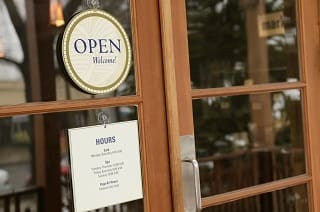
What Does a Commercial Property Insurance Policy Cover?
One of the largest investments for a business is in the actual property. Restaurants, stores, dealerships and other businesses rely heavily on the physical assets of their location. But what happens when that property is lost or damaged?
As much as we’d like to, we can’t control the weather, and it can be hard to predict. If your business is in areas where natural disasters are frequent or likely, it’s crucial to have property insurance.
Commercial property insurance provides compensation if your business’ commercial property is damaged by perils such as:
-
Fire
-
Smoke
-
Wind
-
Hail
-
Lightning
-
Theft
-
Vandalism
Property coverage can extend beyond the structure of the building, as well, to include furniture, equipment, computers, fences, inventory and more. Keep in mind that commercial property insurance won’t cover against everything, and coverage depends on the type of policy. Most policies do not cover floods or earthquakes. If you live in an area where these perils are common, you may want to invest in separate policies for those dangers.
A named-perils policy only covers perils (or incidents) explicitly written on the policy. If lightning is not listed on such a policy, it won’t be covered. The other type of policy is an unnamed perils policy, which protects against both named and unnamed perils. 
Difference Between Actual Cash Value and Replacement Cost
There are two ways you can receive compensation for a commercial property insurance claim. The difference between these two values is the amount of depreciation. Actual cash value (ACV) does not account for depreciation while replacement cost value (RCV) does. In other words, replacement cost is the cost of replacing the lost or damaged item while considering normal wear and tear and price changes. For example, say a fire destroys your laptop valued at $1,000. You’ve only had the laptop for two years, and laptops typically last for five. With RCV, you will receive enough money to purchase a replacement of similar or identical type and quality. ACV is a typically less expensive policy, but usually provides less compensation than RCV.
You can also upgrade your RCV with extended replacement cost, which extends the amount of coverage for damage due to a covered peril.
What Does Commercial Property Insurance Cost?
On average, small businesses pay $500-$1,000 a year for commercial property insurance. This varies on a variety of factors, however. There are ways to bundle certain insurance coverages and save money. A business owners policy is useful for small businesses who wish to bundle property insurance and liability coverage. Other factors that affect the cost of property insurance include location, building size, replacement value, industry, claims history and age of the business, credit history of the insured and more.
If you pay a higher deductible, you may pay less in premiums, but this also means you’re paying more out of pocket. Consider the threats your business faces and the replacement value of the structure and its items before deciding between higher or lower deductibles, as well as choosing between RCV and ACV. Each business is different with unique needs and dangers. If you’re unsure of the right path to take with your insurance, speak with an agent.
Is Commercial Property Insurance Required?
Generally, commercial property insurance isn’t required by the state. Many lenders will require you to have a certain amount of insurance, however.
Besides mandated requirements, commercial property insurance is crucial to protect your business. A business is perhaps one of the biggest investments you can make. You don’t want to put years and thousands of dollars into the business just for one accident or disaster to sweep it away.
